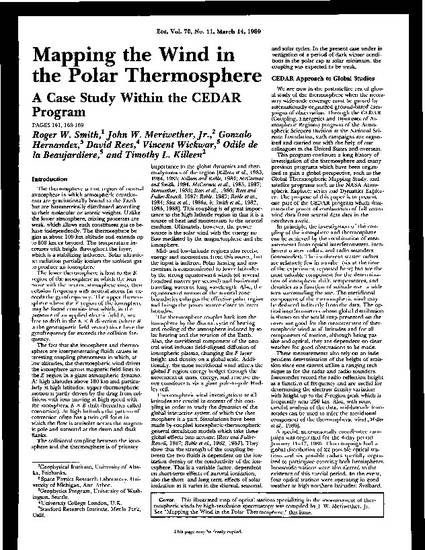
Article
Mapping the Wind in the Polar Thermosphere: A Case Study within the CEDAR Program
Eos, Transactions, American Geophysical Union
Document Type
Article
Publication Date
3-14-1989
Disciplines
Abstract
The thermosphere is that region of neutral atmosphere in which atmospheric constituents are gravitationally bound to the Earth but are barometrically distributed according to their molecular or atomic weights. Unlike the lower atmosphere, mixing processes a reweak, which allows each constituent gas to behave independently. The thermosphere begins at about 100-km-altitude and extends up to 500 km or beyond. The temperature increases with height throughout the layer, which is a stabilizing influence.
Citation Information
Smith, R. W., J. W. Meriwether Jr., G. Hernandez, R. David, V. Wickwar, O. de la Beaujardiere, and T. L. Killeen (1989), Mapping the wind in the polar thermosphere a case study within the CEDAR Program, Eos Trans. AGU, 70(11), 161, doi:10.1029/89EO00086.

Published by American Geophysical Union in Eos, Transactions, American Geophysical Union. Publisher PDF available for download through link above.